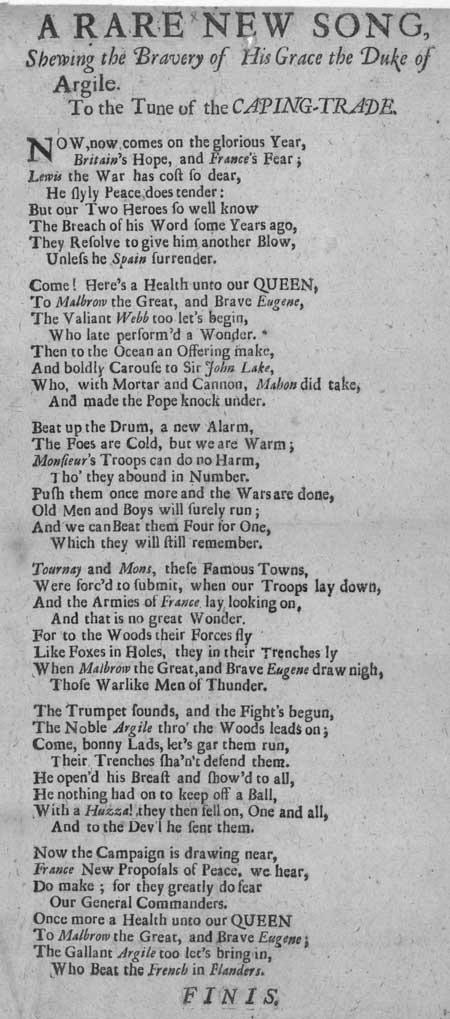Commentary
This ballad begins: 'NOW, now comes on the glorious Year, / Britain's hope, and France's fear; / Lewis the War has cost so dear, / He slyly peace does tender . . . ' A note below the title states that the ballad was sung 'To the Tune of CAPING-TRADE'. With its pageant-like references to a number of military commanders of the time, this ballad celebrates the martial glories of Great Britain, against the Catholic countries of France and Spain. These military references, combined with the toast to the Queen, suggest that the ballad was published during the reign of Queen Anne, from 1702 to 1714. Sounding the trumpet to herald a number of British victories, the eulogy closes with a joint toast to the Queen and the Duke of Marlborough (1650-1722). The recurring reference to Marlborough's valour, probably refers to his great victory over the French at the Battle of Blenheim, in 1704. Early ballads were dramatic or humorous narrative songs derived from folk culture that predated printing. Originally perpetuated by word of mouth, many ballads survive because they were recorded on broadsides. Musical notation was rarely printed, as tunes were usually established favourites. The term 'ballad' eventually applied more broadly to any kind of topical or popular verse.
View Transcription | Download PDF Facsimile
|
 |
Probable date published:
1709 shelfmark: Ry.III.a.10(086)
 View larger image
View larger image
|


